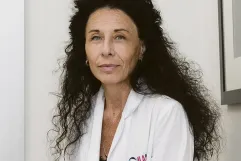
The role of women in the practice of medicine
The feminisation of the healthcare professions in Spain is one of the most notorious developments in this sector in the last two decades.
Many things have changed since, in 1882, the Catalan Dolors Aleu became the first woman in Spain to obtain a degree in medicine. Today, anyone who has the opportunity to visit a faculty of health sciences can see that female students are in the majority in class. Last year, a report by the Ministry of Education estimated the number of women choosing to study medicine at 68.7 %. In Biomedicine the figure rises to 75 % and in Biochemistry it is 65.8 %. Male students, on the other hand, continue to opt more frequently for technology-related degrees, such as Computer Science (87 %) or Telecommunications (77 %); an academic and professional sector in which parity still seems to be an unresolved matter.
There are several reasons for this change in trend in the healthcare world which, in fact, began quite a few years ago. The main one, of course, has to do with the transformations that Spanish society has been undergoing, progressively, towards equal opportunities. The science historian Teresa Ortiz-Gómez, in her study Las mujeres y la actividad científica en los siglos XIX y XX (1999), showed that the first half of the 1990s was a key period, when there was a continuous increase of around 5 %, which meant that in 1995 there were already 61.80 % of female students enrolled in medical school.
As Dr. Silvia Martínez Nadal, paediatrician and neonatology assistant at Hospital de Barcelona, explains, "many young women of my generation were educated in full equality. In my case, medicine was my vocation from a very young age. So when the time came to choose university studies, I had no doubts about which path I should take". Certainly, the vocational factor plays a very important role in the medical profession. In the words of Dr. Lídia Martínez Fijo, assistant doctor at the General Surgery Department of Hospital de Barcelona, "many women have a more developed capacity for caring and concern for others than men, and this has an influence on their decision to choose the health sector". In my own particular case, the desire to contribute to society led me to consider international cooperation first, which eventually led me to choose medicine”.



